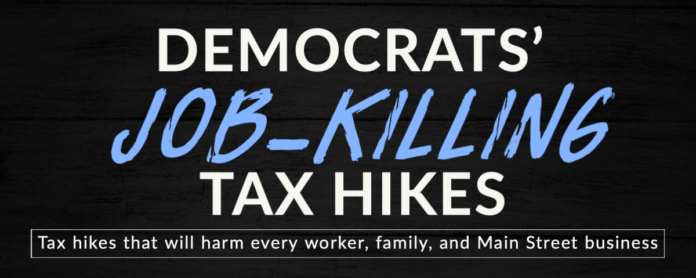In the realm of politics, understanding the concept of political intelligence is crucial for anyone seeking to navigate the complex world of government, policies, and ideologies. While it may be tempting to dismiss opposing political parties’ viewpoints as unintelligent or lacking in logic, it is essential to delve deeper and analyze the factors that contribute to political intelligence. This article aims to shed light on the topic, focusing on Democrats and their perceived intelligence.
Defining Political Intelligence
Before delving into why some may perceive Democrats as unintelligent, it is important to define what political intelligence entails. Political intelligence refers to an individual’s ability to comprehend and analyze political situations, policies, and ideologies. It encompasses a deep understanding of political systems, current events, historical context, and the ability to think critically. By possessing political intelligence, individuals can effectively participate in political debates, articulate their views, and make informed decisions.
Factors That Influence Political Intelligence
Several factors contribute to an individual’s political intelligence. By examining these factors, we can gain a deeper understanding of why Democrats may be considered unintelligent by some:
- Educational Background: Education plays a significant role in shaping an individual’s political intelligence. Democrats, as well as individuals from other political affiliations, come from diverse educational backgrounds. While some Democrats may hold advanced degrees in political science or related fields, others may possess knowledge gained through personal experiences or self-education.
- Media Influence: The media plays a substantial role in shaping political opinions and intelligence. Democrats, like Republicans or any other political group, are exposed to various media sources, such as news channels, newspapers, or online platforms. These sources can influence their understanding of political issues, leading to differences in perspectives.
- Values and Beliefs: Different ideologies and values drive Democrats, just as they do with any other political group. These values shape their approach to policies and influence their understanding of political matters. While some may argue that these values are misplaced or naive, it is essential to recognize that political intelligence can manifest in diverse ways.
- Personal Experiences: Life experiences also have a significant impact on an individual’s political intelligence. Democrats, like individuals from any political affiliation, have varied personal experiences that shape their views and perspectives. These experiences can range from encounters with social inequality to interactions with government institutions.
Political intelligence is not limited to Democrats; it extends across the political spectrum. By striving to understand the factors that influence political intelligence, we can engage in meaningful conversations and bridge the gap between different ideologies.

Credit: us.macmillan.com
Exploring Democratic Ideology
The Democratic Party, also known as the Democrats, is one of the two major political parties in the United States. While their party name may suggest unity and inclusivity, many critics argue that their ideology is flawed. To delve deeper into this debate, let’s take a closer look at the principles and policies that form the foundation of the Democratic Party.
Overview Of Democratic Principles
The Democratic Party is shaped by a set of core principles that guide their ideology. These principles highlight their commitment to social justice, equality, and progressive change. Understanding these principles is crucial to gaining insights into the Democratic mindset.
Analysis Of Democratic Policies
One way to assess the intelligence of any political ideology is to examine its policies and their implementation. By analyzing the policies put forth by the Democrats, one can gain a better understanding of their thought process and the potential consequences of their actions.
It is important to note that the policies propagated by the Democratic Party often place a significant emphasis on using government intervention as a means to address societal issues. This approach can have its benefits, such as addressing income inequality, providing affordable healthcare, and improving access to education.
However, critics argue that the Democratic policies sometimes lead to unintended consequences. For example, government intervention in certain sectors may stifle innovation and create unnecessary red tape. Critics also maintain that certain Democratic policies, such as expansive social welfare programs, can potentially burden the economy and hinder individual responsibility.
When it comes to economic policies, Democrats have historically leaned towards a more progressive approach. This includes advocating for higher taxes on the wealthy in an effort to redistribute wealth and promote economic equality. While this may seem fair in theory, opponents argue that it can stifle economic growth and discourage entrepreneurship.
Moreover, an analysis of the Democrats’ stance on environmental issues reveals their commitment to combatting climate change and promoting renewable energy sources. While their environmental policies may be applauded by some, others contend that they can lead to job losses in certain industries and an increased reliance on expensive alternative energy sources in the short term.
Conclusion
Exploring the ideology of the Democratic Party offers valuable insights into the principles and policies that shape their thinking. While their commitment to social justice and progressive change is commendable, critics raise valid concerns about the potential consequences of their policies. By delving deeper into these areas, we can foster meaningful discussions and promote a better understanding of the political landscape.
Examining Political Differences
Understanding the political landscape is essential in comprehending the various perspectives that shape our society. Examining political differences, particularly between Democrats and Republicans, can shed light on the contrasting ideologies that often spark passionate debates. In this article, we will delve into a comparison of Democratic and Republican ideologies, and explore the implications of these political differences.
Comparison Of Democratic And Republican Ideologies
When it comes to political ideologies, Democrats and Republicans hold contrasting beliefs and priorities. Taking a closer look at their respective ideologies can provide insights into the different approaches they take in addressing various issues:
| Democrats | Republicans |
|---|---|
|
|
While these ideologies provide a general framework, it is important to recognize that individual Democrats and Republicans may hold a range of nuanced beliefs within their parties. Political ideologies are not rigid; they often evolve over time and are influenced by various factors such as cultural shifts and current events.
Implications Of Political Differences
The contrasting ideologies of Democrats and Republicans have far-reaching implications that extend beyond debates and policy decisions. These political differences can shape the way societies are governed and influence the outcomes of important social and economic issues. Some key implications include:
- Policies and legislative agendas: The diverging ideologies of Democrats and Republicans often result in different policy priorities and legislative agendas. These differences can shape decisions related to healthcare, education, taxation, immigration, and other critical areas.
- Partisanship and polarization: Political differences can contribute to increased partisanship and polarization within societies. The strong identification with political parties and the intensity of debates can create significant divisions among citizens.
- Voting behavior: Political differences influence voter behavior, with individuals often aligning their choices based on their ideological perspectives. Understanding these differences is crucial in predicting election outcomes and analyzing political trends.
- Social and cultural dynamics: Democratic and Republican ideologies often reflect different social and cultural priorities. These ideologies can influence public opinion and set the stage for debates on sensitive topics such as reproductive rights, LGBTQ+ rights, environmental policies, and more.
Examining political differences helps us understand the complexity of our democratic systems and the multifaceted perspectives that shape our society. By embracing a deeper understanding of these ideologies, we can foster respectful dialogue and work towards finding common ground for the betterment of our nation.
Challenging Stereotypes
Stereotypes can be dangerous as they often create false perceptions and oversimplify complex issues. When it comes to political discussions, one common stereotype that is often perpetuated is that Democrats are stupid. However, it is important to recognize that such a generalization is misguided and fails to account for the diverse perspectives that exist within the Democratic party.
The Danger Of Generalizations
Generalizations can be misleading and harmful as they overlook the individuality and complexity of people’s beliefs and experiences. When we label an entire group of people as “stupid,” we ignore the multitude of factors that shape their viewpoints and reduce them to a single characteristic. Unfair generalizations hinder constructive dialogue, prevent understanding, and perpetuate division.
It is crucial to approach political discussions with an open mind, recognizing that individuals within the Democratic party possess a wide range of ideas and values.
Recognizing Diverse Perspectives Within The Democratic Party
The Democratic party encompasses a broad spectrum of individuals, each with their own unique perspectives. From progressives to moderates, activists to policymakers, Democrats have varied opinions on a wide range of issues, including healthcare, education, the economy, and the environment.
It is essential to recognize and respect this diversity of opinions, as it allows for a robust exchange of ideas and the development of comprehensive policies that address the needs and concerns of the American people. By engaging in meaningful discussions and debates, we can challenge assumptions and foster a more inclusive and representative democracy.
Moreover, the Democratic party’s commitment to inclusivity and social justice often leads to the amplification of marginalized voices and the push for progressive policies. Dismissing Democrats as “stupid” overlooks the work they have done to promote equality, protect civil rights, and advocate for necessary reforms.
While it is natural for political parties to have differences, it is important to approach discussions with respect and a willingness to understand opposing viewpoints. Only through active engagement and open-mindedness can we challenge stereotypes and foster productive conversations that lead to real solutions.
Promoting Understanding And Dialogue
Developing a deeper understanding of political perspectives is crucial for creating a harmonious and progressive society. Despite the adversarial nature of politics, it is essential to foster open-mindedness and engage in constructive conversations. Democrats and Republicans often find themselves at odds due to their differing ideologies. This post aims to explore strategies to promote fruitful discussions with Democrats by highlighting the importance of open-mindedness and providing practical approaches to ensure productive political dialogues.
The Importance Of Open-mindedness
Open-mindedness paves the way for meaningful conversations and allows individuals to embrace diverse perspectives. By being receptive to new ideas and willing to challenge our own beliefs, we enhance the chances of finding common ground with Democrats. When approaching political discussions, it is vital to set aside personal biases and approach the conversation with an empathetic and understanding mindset. This creates an atmosphere where both parties can engage in a mutually beneficial exchange of ideas.
Strategies For Productive Political Discussions
Effective communication is key to promoting understanding and dialogue with Democrats. Consider implementing the following strategies:
- Foster respect and empathy: Treat every viewpoint with respect, even if you strongly disagree. Demonstrate empathy by trying to understand the underlying reasoning behind the Democrat’s perspective. This encourages a more open and respectful conversation.
- Active listening: Give your undivided attention to the Democrat’s viewpoint. Avoid interrupting and paraphrase their ideas to ensure clarity and demonstrate that you are actively engaged in the conversation.
- Stay focused and concise: Present your arguments in a clear and concise manner. By articulating your points effectively, you increase the likelihood of your Democrat counterpart understanding your perspective. Avoid tangents and remain focused on the main topic at hand.
- Provide evidence-based arguments: Support your opinions and positions with credible facts, data, and sources. This helps to validate your viewpoints and encourages a more evidence-based discussion with Democrats.
- Avoid personal attacks: Political discussions should concentrate on the issues at hand rather than attacking individuals. Keep the conversation civil and focused on ideas and policies.

Credit: www.bu.edu

Credit: www.facebook.com
Frequently Asked Questions Of Why Are Democrats So Stupid
What Are The Issues Of The Democratic Party?
The Democratic Party faces issues like ideological divisions, lack of clarity in messaging, and struggles to connect with certain demographics. These challenges hinder their ability to unite members and effectively communicate their platform.
What Have Democrats Done For America?
Democrats have implemented policies focused on healthcare, education, and social equality. They passed the Affordable Care Act, expanded Medicaid, and protected pre-existing conditions. They invested in public schools and made college more accessible through student loan reforms. Democrats advocate for civil rights, LGBTQ+ rights, and women’s rights, striving to create a fair and inclusive society for all Americans.
What Do Republicans Stand For?
Republicans stand for conservative values, limited government, lower taxes, individual rights, and free market principles. They advocate for smaller government involvement in the economy and a strong defense. Republicans prioritize personal liberty, traditional family values, and individual responsibility.
Why Democrats Are Good For America?
Democrats are good for America because they prioritize affordable healthcare, economic equality, and social justice. Their policies aim to create opportunities for all Americans, protect the environment, and invest in education. Democrats work towards a fairer society that benefits everyone, promoting progress and inclusivity.
Why Do Some People Think Democrats Are Stupid?
Some people hold the belief that Democrats are stupid due to ideological disagreements and misperceptions. However, intelligence varies among individuals regardless of political affiliation.
Conclusion
It is essential to approach political discussions with respect and open-mindedness, refraining from derogatory and generalized statements. While it is natural for people to have differing opinions, it is counterproductive and harmful to label an entire political group as “stupid.
” Engaging in thoughtful debates, considering various perspectives, and finding common ground will contribute to a more inclusive and constructive political discourse. Ultimately, we should strive for unity and understanding rather than perpetuating divisions.

